Call center best practices are proven strategies that improve agent efficiency, reduce operational costs, and boost customer satisfaction.
Whether you’re managing a small team or a large contact center, these 19 actionable practices are used by top-performing centers worldwide to deliver exceptional customer service while maintaining profitability.
A business will flourish only when its customers are satisfied with the products and services that it has to offer.
Otherwise, your competition is always there to grab your dissatisfied customers.
And your call center plays an important role here.
If you want to generate customer loyalty, you need to follow some call center best practices.
Gone are the days when call centers used to be considered as a cost play.
Today, your call center plays a front-facing role not just to acquire new customers but also to retain the existing customers.
A bad customer experience for a customer will not only make him churn but will also result in negative word of mouth.
Below are some of the call center best practices that you need to follow to provide exemplary customer service, but first, understand the meaning of call center management.
Table of Contents
A. What is call center management?
Call center management is the process of overseeing a contact center. It aims to meet the organization’s goals.
This includes managing:
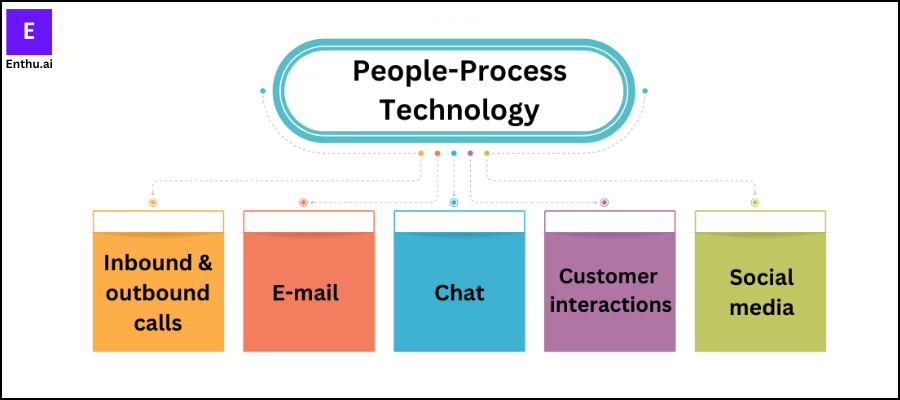
Call center management typically must: set performance goals and metrics, manage staffing levels, and train and coach agents.
Evaluating and monitoring call quality and customer satisfaction. Implementing call center tech solutions. Analyzing data to improve operations and service.
Effective call center management is vital. It ensures the center meets its goals, provides quality service, and operates cost-effectively.
It requires a mix of leadership skills and technical expertise. It also needs conversation intelligence tools. Plus, a deep understanding of customers and the business is key.
B. Mastering CX: Essential contact center best practices for 2025
1. Leverage call monitoring and scoring
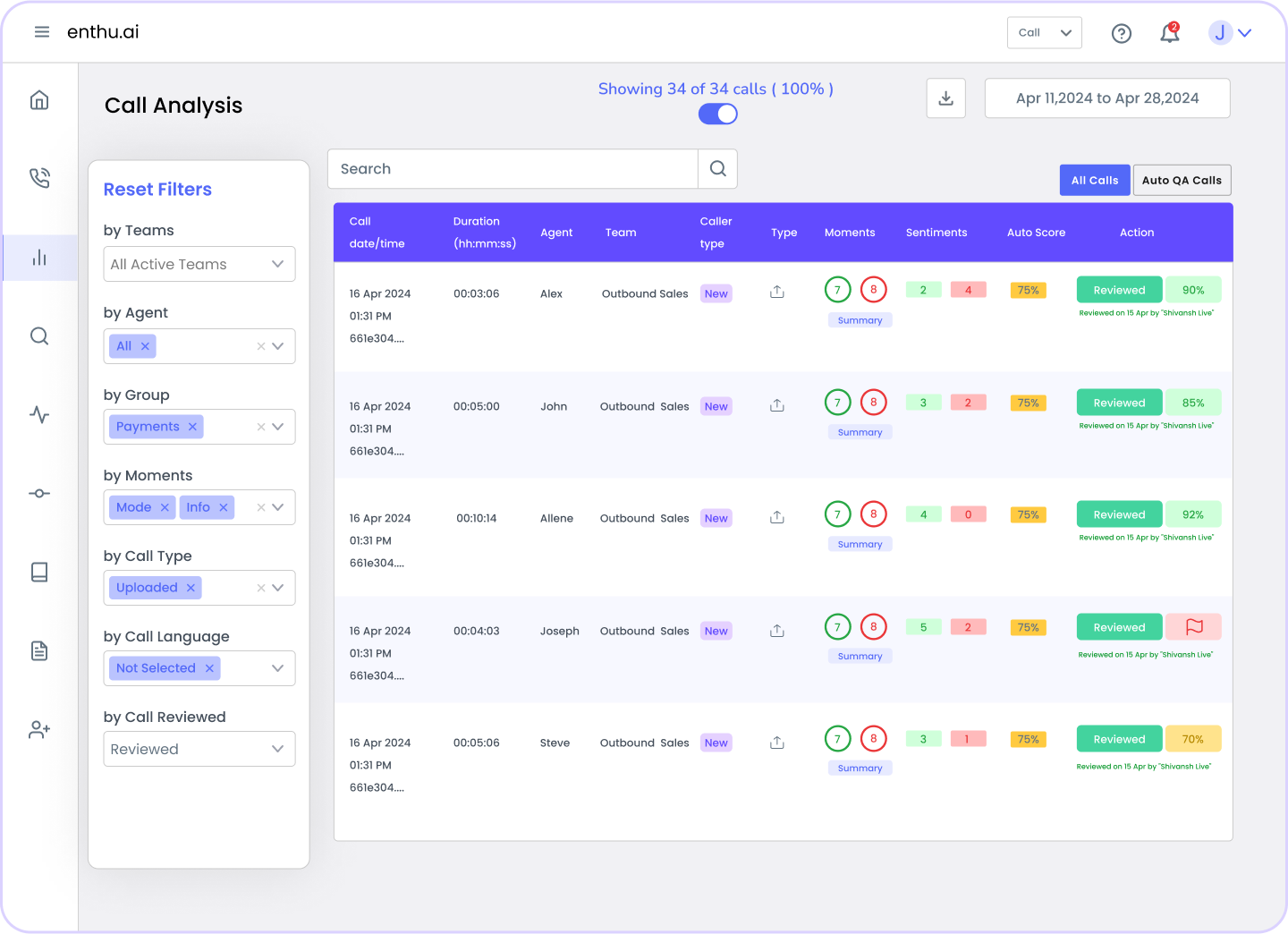
Regularly scoring customer calls is vital in any successful contact center.
Use conversation intelligence and speech analytics tools, like Enthu, to gain insights into customer-agent interactions. They have a rich feature set.
This data-driven approach helps to evaluate customer service agents. It also ensures they meet strict quality standards.
Analyzing calls to find areas for improvement helps you provide high-quality, consistent service. This will satisfy and keep your customers loyal.
2. Focus on metrics and KPIs

In customer service, tracking key metrics and KPIs is vital. It’s like a compass guiding you to excellence.
Once again, speech analytics provide valuable data insights into customer interactions.
Analyzing these KPIs helps find patterns and bottlenecks. It shows where agents need more support.
Data-driven decision-making helps you to:
- Optimize workflows.
- Allocate resources effectively.
- Align your customer service strategy with business goals.
3. Foster emotional intelligence in agents
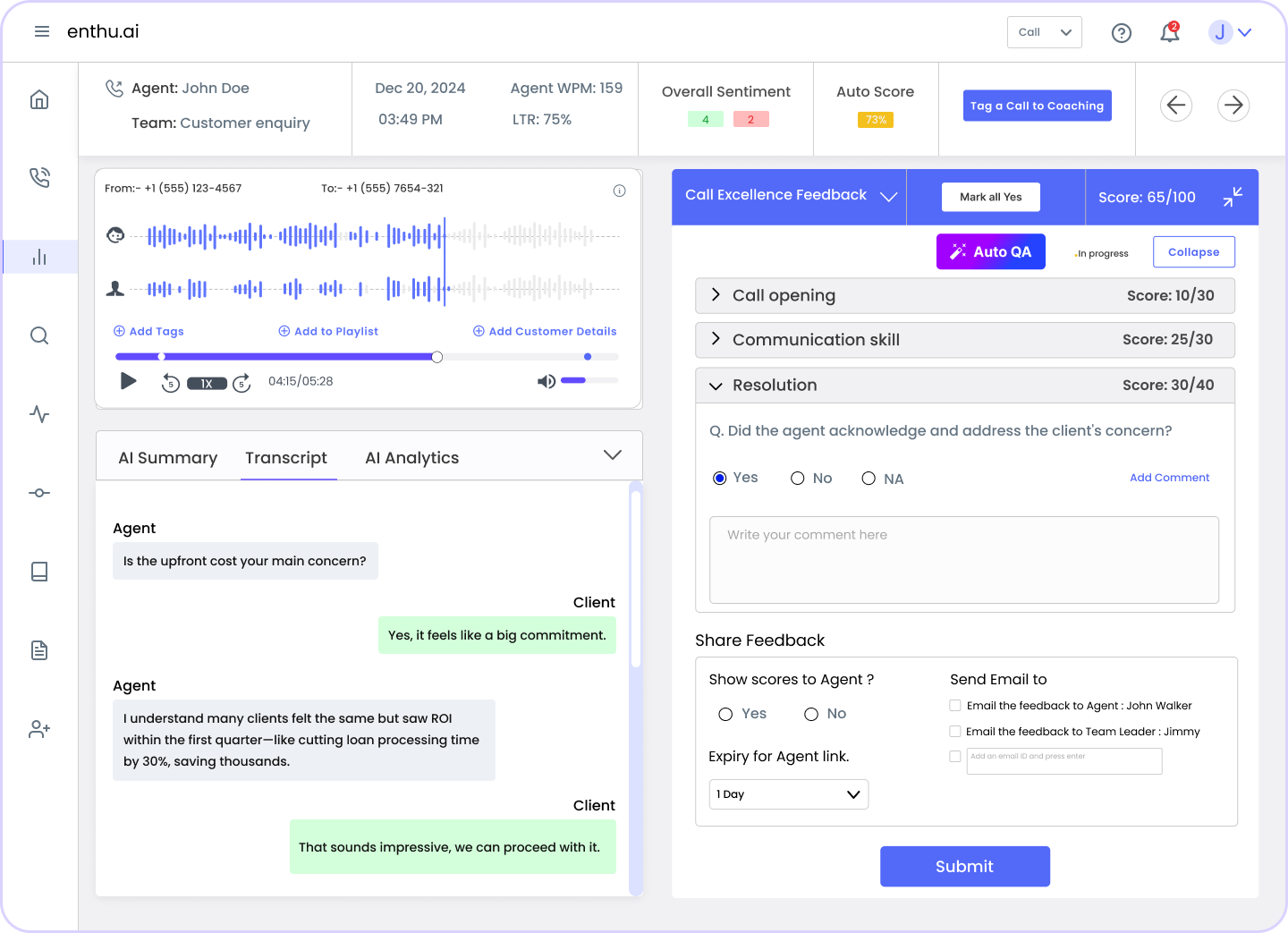
In pursuing exceptional customer experiences, emotional intelligence is a powerful asset.
By training your agents to develop emotional intelligence, they can connect with customers on a deeper level.
Empathy and understanding are key to connecting with customers. They create meaningful interactions that resonate with them.
When agents use emotional intelligence, customers feel valued and heard. This boosts satisfaction and loyalty.
4. Implement quality assurance processes
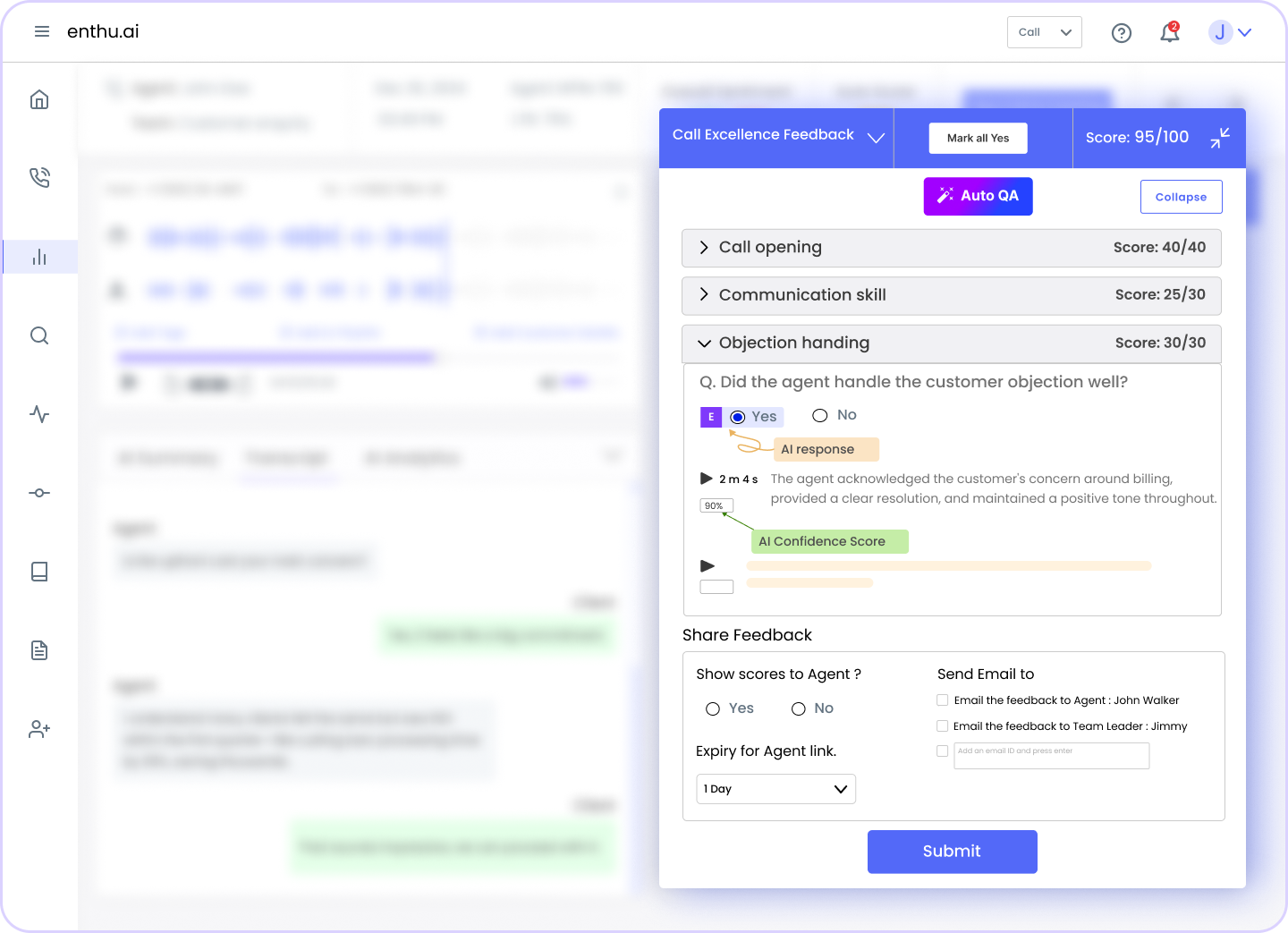
Consistency in delivering exceptional customer service is of utmost importance.
A strong quality assurance process ensures every customer interaction meets high standards.
Regularly checking agent-customer chats helps maintain service quality. It also finds areas needing more training or support.
This approach builds a culture of constant improvement. It keeps your contact center delivering great service.
5. Continuously adapt and evolve
The business landscape is dynamic, and customer expectations can change rapidly.
Being flexible and adaptive in your customer service approach is vital.
Stay updated on trends and customer preferences. Be ready to adjust your strategies.
Embrace new technologies and tools that meet customer needs. Be willing to experiment and learn from both successes and failures.
A culture of continuous improvement keeps your customer service effective and relevant.
6. Embrace an omnichannel approach
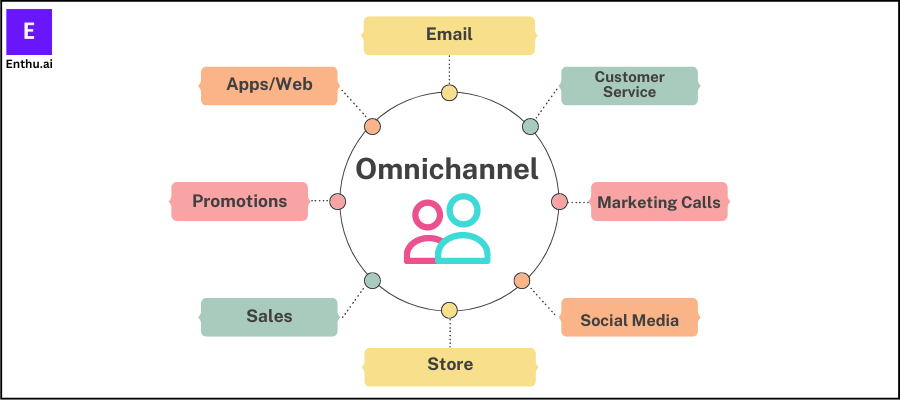
Modern customers interact with businesses through various channels, such as phone, email, live chat, social media, and more.
Providing a consistent experience across these channels is crucial for customer satisfaction.
An omnichannel approach allows customers to seamlessly transition between channels without repeating information.
It also lets customer service agents, in-office or remote, access relevant data from past interactions. This leads to more personalized and efficient service.
7. Implement self-service options (chatbots/IVR systems)
Self-service options, like chatbots and IVR systems, empower customers. They can quickly solve common issues without waiting for an agent.
These technologies can reduce call volumes and wait times. This lets agents focus on more complex, critical issues.
However, it’s essential to strike a balance and offer customers the option to connect with a live agent when needed.
Regularly analyze self-service interactions. Find ways to improve the user experience.
8. Leverage AI and automation
Artificial Intelligence (AI) can revolutionize customer service by automating routine tasks and providing personalized experiences.
Chatbots can answer FAQs. AI systems can analyze customer data to make tailored recommendations.
Automation streamlines processes, reduces human errors and enhances overall efficiency.
However, we must keep a human touch in interactions. Customer service agents should be ready to help with complex or emotional issues.
See how Enthu.AI contributes in call center management and enhances customer experience.
9. Offer proactive support
Anticipating customer needs is a proactive approach that sets your call center apart from the competition.
Use data insights and customer feedback. You can find issues before they arise and offer solutions.
Proactively reaching out to customers shows you care. It also provides them with useful info, resources, or solutions.
This prevents problems and reinforces a positive image of your brand in customers’ minds.
10. Implement customer journey mapping
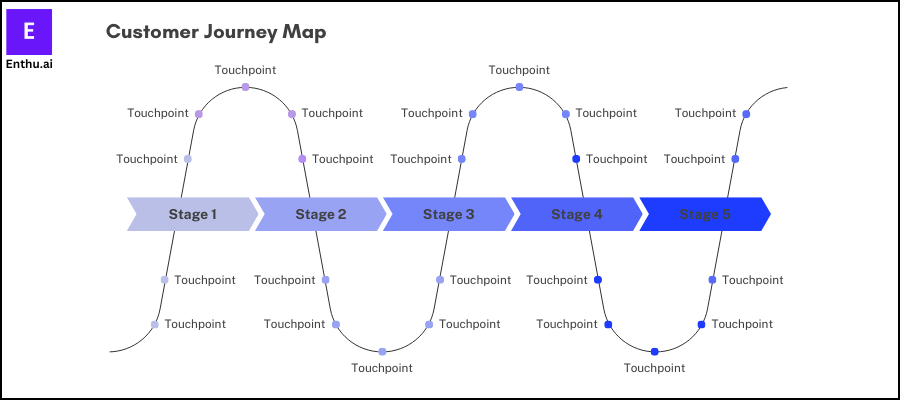
As mentioned, emotional intelligence is key to effective customer journey mapping.
Training agents to empathize with customers’ emotions boosts satisfaction and loyalty.
Agents should be encouraged to empathize with customers. They should listen to their concerns and respond with compassion.
Emotional intelligence training helps agents with tough customers. It turns negative situations into positive outcomes.
11. Make customers’ experience memorable
No business can survive for long without customers.
As a customer-facing unit, call centers must provide an excellent experience.
A great customer experience will help you retain customers. They will then be a reliable revenue source for years.
Also, it is one of the ways that can help you create differentiation and beat the competition.
There is only one way to make your customer experience journey memorable: by genuinely feeling empathetic for the customer and then helping them solve their problem. For that, you need agents who put customer first and are willing to go all out to drive customer satisfaction.
12. Create balance between technology and human factor
Solutions like chatbots and IVRs might be seen as relief by call centers but they may not be well received by customers every single time.
Imagine the last time when you were frustrated by the scripted conversation from an agent, without they putting any effort to help understand your problem.
No doubt 86% of customers still do not trust customer service tools.
Identify your customer journey and allow them to speak to a real person at their own will. In short, ,make sure that customers can easily reach well-trained agents. Ultimately, a call center of today needs to be a blend of technology and human factor such as a speech analytics software that analyses and monitors call center calls with a flexibility to switch between the two at ease.
13. Make your first impression count.
You have only one opportunity to make a first impression.
Providing solutions to customer issues comes at a later stage.
You need to impress clients right from the start.
Customers are likely to form their judgement within seconds.
In fact, you only have 30 seconds to make a first impression.
Agents need to practice important call center skills like being patient, having the right attitude and practising active listening. Agents should be trained to resolve issue within the first call itself because it increases customer satisfaction. Also, chances of recommending your company to other people by the clients increases. Ultimately you need to ensure you help clients believe that you are there to help them out with their issue. And then walk the talk.
14. Solve customer issues quickly and dedicatedly
It is no hidden secret that every customer wants their issues to be solved as quickly as possible.
And if you want to remain in the game you have to give what customer demands, i.e, great service.
You have to reduce the time taken to resolve issues and there are a number of ways in which you can do that like: a. Provide real-time updates to customers about the status of their issue. b. Give your CRM access to call center agents. c. Streamline agents workflow to eliminate repetitive tasks. d. Be honest and transparent about the time required to solve the issue.
15. Train agents on a regular basis
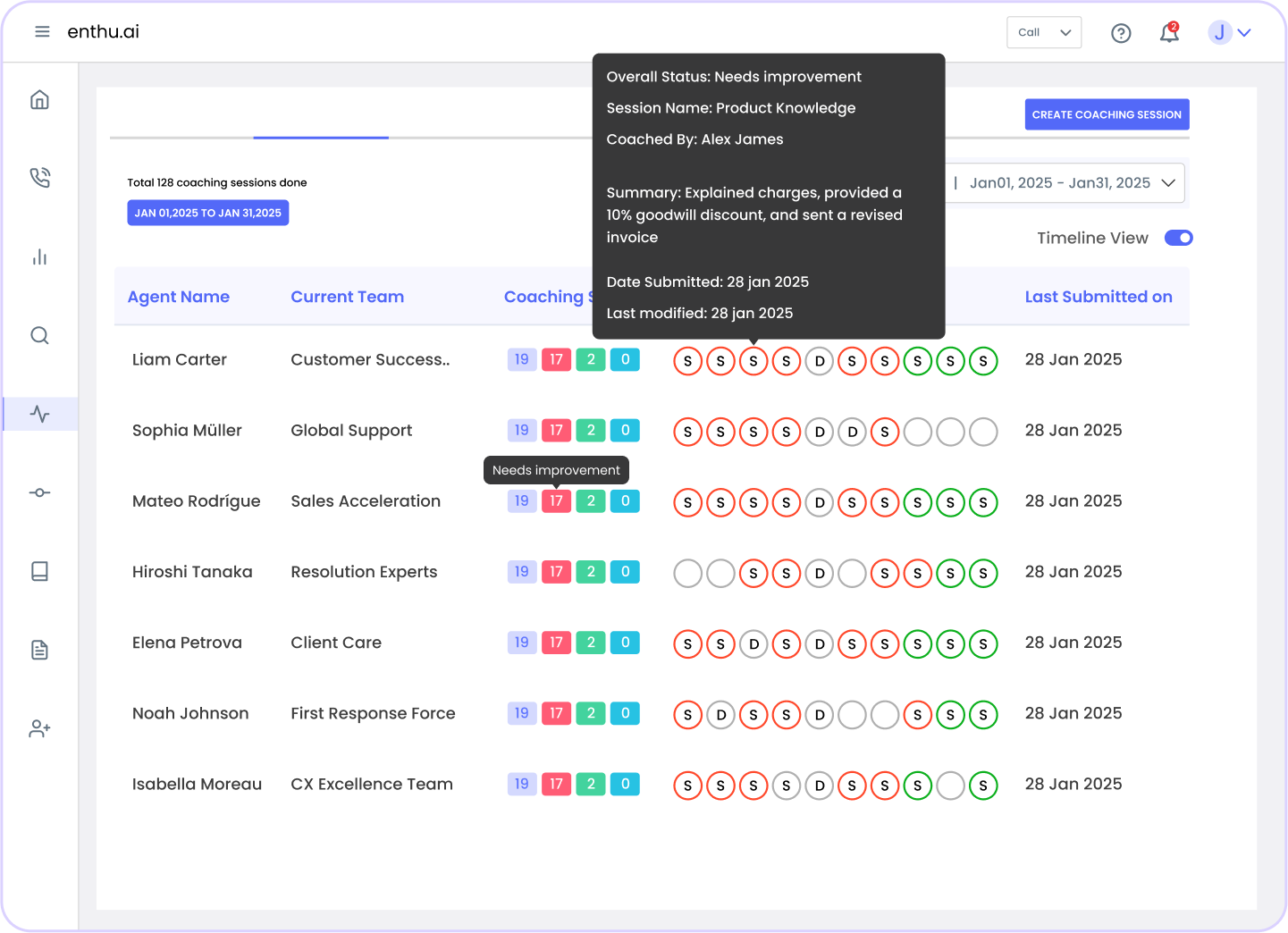
Customers don’t like to be put on hold for too long.
To avoid this situation, you need agents who can handle different kinds of customer issues quickly and easily.
Regular agent training becomes a must-have in such a scenario.
Empowering agents to handle complex issues builds their confidence and promotes a customer-centric mindset.
Proper call center training will help agents to avoid making costly mistakes. Also, it helps agents to add new skills to their skill set.
In training, you must focus on product knowledge, soft skills, and documentation.
16. Track customer satisfaction.

Providing excellent customer service is the ultimate goal of the call center.
Asking customers about their experience after every interaction should be a part of your tracked metrics.
It is important because customer satisfaction is directly related to customer loyalty.
A satisfied customer not only brings revenue for a long time but also brings in new customers as well.
So make sure that you record customer experience via surveys after every call and analyse those replies to identify the trends.
Tip: Invest in a good call center software to track all the KPIs.
17. Have a centralized knowledge base
“Knowledge is Power.”
This is true for call centers, too. Agents with product knowledge can resolve issues. They provide faster, better customer service.
Have a readily available knowledge base for the customer support team and it must include the organization’s data, important documents, training modules, and more. When agents can easily access this knowledge base, they can handle customer issues effectively and improve call center quality.
18. Monitor and analyze customer Feedback
A customer can tell you a lot about how efficiently a company is performing.
But in most cases, a customer won’t tell how satisfied he is with the call center’s service until he is asked for it in feedback.
Only one out of 26 customers will complain about a poor experience and around 90% will just leave if they had a bad experience.
But out of the remaining 10 people, one would tell about his bad experience to other people.
So, use customer feedback to lower churn and boost satisfaction.
19. Publish helpful content online
Prioritize your website as a valuable resource for customers even before they pick up the phone.
Anticipate their needs. Offer sought-after info, like FAQs, video tutorials, and detailed guides.
By making this content easy to find online, you’ll reduce call volumes. This will let your team focus on urgent customer issues.
Use online resources to improve customer support and service efficiency.
C. Transform your call center’s customer experience in 2025 with Enthu. AI.
Use our advanced speech analytics and conversation intelligence tools. They will monitor customer service agents, ensure quality, and provide insights into customer interactions.
Train your agents. Teach them emotional intelligence. This will help them connect with customers.
Invest in Enthu.AI to elevate customer satisfaction, reduce call volumes, and establish your brand as a customer-centric industry leader.
Conclusion
Mastering customer experience in 2025 requires a strategic and customer-centric approach.
Adopting these 19 call center best practices can elevate your customer support, boost satisfaction levels, and drive overall business performance.
Remember, the key to success lies in staying agile, embracing technology, and always putting your customers at the heart of your operations.
With these essential best practices in place, your contact center is well-equipped to navigate the dynamic landscape of customer service and build lasting relationships with your customers.
FAQs
1. What's the difference between call center best practices and contact center best practices?
Call center best practices focus specifically on voice-based customer interactions, while contact center best practices encompass all communication channels (voice, email, chat, social media). However, many best practices, like quality assurance, agent training, and performance monitoring, apply to both.
2. How do call center best practices reduce operational costs?
Best practices like first call resolution, proper agent training, and efficient call routing reduce average handle time (AHT), minimize repeat calls, and decrease customer churn. This directly lowers per-call costs and improves overall profitability.
3. What metrics should you track to measure call center best practice effectiveness?
Key metrics include: Average Handle Time (AHT), First Call Resolution (FCR), Customer Satisfaction (CSAT), Net Promoter Score (NPS), Agent Adherence, and Quality Assurance scores. These metrics help you identify which practices are working and where improvements are needed.
4. How often should you update your call center best practices?
Review and update your practices quarterly or when you notice changes in customer behavior, technology advancements, or performance metrics. Industry trends and competitive benchmarks should also inform your updates.
5. Can small call centers implement the same best practices as large centers?
Yes, but scaled appropriately. Small centers may not need all 19 practices, but core practices like agent training, quality monitoring, and customer feedback loops apply regardless of size. Prioritize practices that address your biggest pain points first.
6. What's the ROI of implementing call center best practices?
Most centers see measurable improvements within 4-8 weeks: reduced AHT (5-15%), improved FCR (10-20%), higher CSAT scores (5-10 points), and lower agent turnover. These improvements directly increase revenue and reduce costs.



 On this page
On this page

